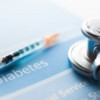Myth #1: Alcohol intake does not impact a guy’s fertility
Debunked! Alcohol CAN affect fertility treatment. The brain’s communication with the testes is disrupted with alcohol consumption and this reduces the efficiency of making sperm.
Studies have consistently shown that male alcohol intake, even in large quantities, does not appear to impact semen parameters directly. However, there seems to be a consistent correlation between excess alcohol consumption and lower success with fertility treatments. Defining “excess alcohol” varies. One study defines it as > 50 grams (1.8 oz or 53 ml of alcohol) per week and another study says 90 grams/day (3.2 oz or 94 ml).
Best to reduce alcohol intake to less than 50grams/week or, ideally, to not imbibe at all a month prior to and during fertility treatment.
Myth #2: Taking Testosterone will improve your sperm count
Dangerously debunked! Taking Testosterone REDUCES sperm counts AND fertility! In 2012, the American Urological Association published survey data showing that 25% of their physician members were still prescribing testosterone for men with low T who were trying to conceive!
When I began practicing medicine in 2010, many of my male patients had no idea that testosterone was bad for sperm. Now I see that men are more aware of the ill effects of testosterone on sperm. It’s important to know that while semen parameters can return back to baseline 6 months after stopping prolonged testosterone use, overall, your sperm parameters may be lower than before taking T.
Myth #3: Frequent ejaculations impact fertility
Debunked: In the 1960’s to 1980’s this was thought to be true but by the 90’s this was debunked by a very thorough study that showed frequency of ejaculation did not impact pregnancy rate. Just to understand how this all started, it’s true that if you ejaculate once after abstaining for 5 days, your semen volume will be at its highest. And, if you ejaculate again within 2 days, the volume, concentration, and total motile count will be lower, BUT still well above thresholds that are consistent with fertility. Interestingly, sperm shape and DNA fragmentation indices do not appear to be effected by frequent ejaculations.
Ultimately, it’s true that frequent ejaculations can lower semen volume, Total motile count and concentration, BUT frequent ejaculations DO NOT impact your ability to conceive. Every situation is different, of course, so talk to your doctor if you have questions.
Myth #4: Fertility supplements are only for women
Debunked: Free radicals are byproducts of cellular metabolism and can be toxic to sperm. Men have the ability to scavenge these free radicals with antioxidants BEFORE they do damage to their sperm but the system is not always perfect. Supplements that include antioxidants like vitamin C and E may be helpful to optimize sperm health. I advise my male patients to reach for a simple daily men’s multivitamin and additional vitamin C (500 mg/day) when they are trying to get pregnant with their partner.
Myth #5: There are no reliable at home sperm tests for men
Debunked for sure: With the availability of the YO Home Sperm Test, this is no longer true! Now there is an FDA approved, smartphone/PC/MAC-based male fertility test that provides men with an assessment of their moving sperm concentration with 98% accuracy – equivalent to automated analyzers commonly used by fertility centers.
When women are curious about whether they are ovulating, they reach for an ovulation prediction kit. Now men, and their partners, curious about his sperm performance, can test his sperm in the privacy of their own home within ten minutes. Those results are YO Scored and a video of his sample is also captured. All can be shared remotely or in person with your fertility doctor.







